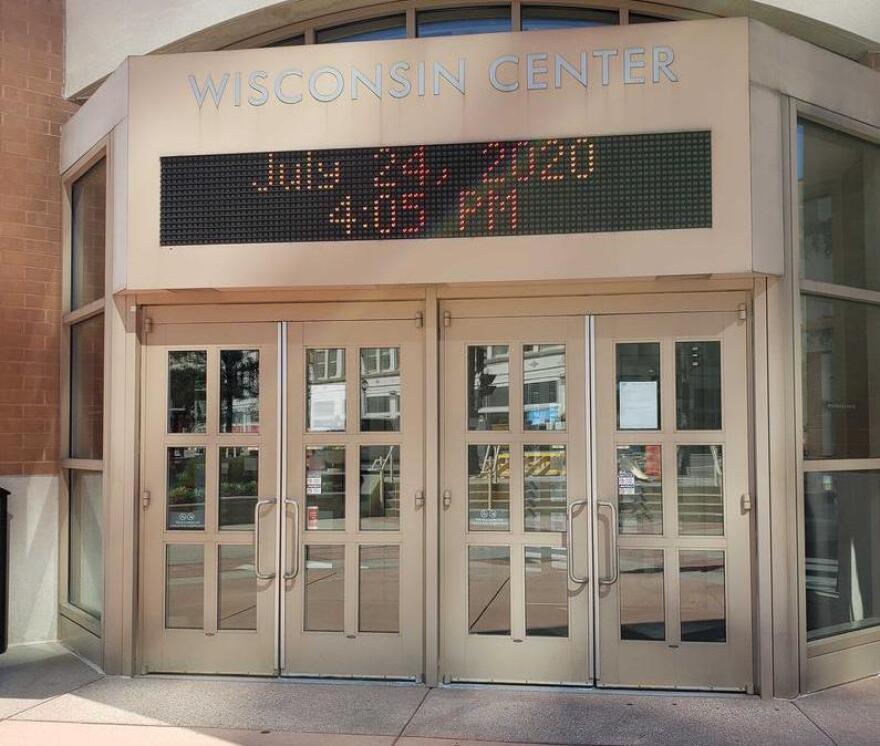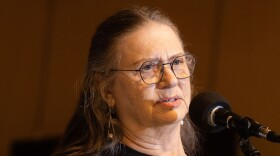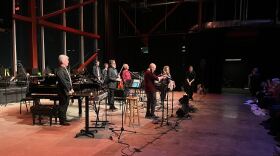The Democratic National Convention is three weeks away. A lot has changed since we first learned Milwaukee would be the host city. The coronavirus pandemic forced much of the convention to go virtual. All of the large events have been canceled and delegates have been told to stay home.
What convention week in Milwaukee will really look like remains to be seen. But what we do know is that conventions are a significant part of the election process.
Elaine Kamarck is a senior fellow at the Brookings Institution and the author of Primary Politics: Everything You Need to Know About How America Nominates Its Presidential Candidates. She’s been a member of the Democratic National Committee and its Rules Committee since 1997.
We spoke with Kamarck about what to look for in the 2020 Democratic National Convention and why it's still important, even during a pandemic:
What’s the point of political conventions?
“Well, there's a very important legal point. The formal nomination, by a convention, is what gets the presidential candidate on all 50 ballots and 51 in the District of Columbia," she says.
Kamarck says if you're a presidential candidate running without an established political party, you can only get on the ballot by collecting hundreds of thousands of signatures. If you're running as a Democrat or Republican, a Green Party member, or a couple other parties, the convention's the way to do it.
"Once you receive the formal nomination of your party, you are automatically on all the ballots and if you choose to take it, you automatically receive federal funds to help render election," Kamarck says.
Many people may think that when they went to vote in Wisconsin's presidential primary in April, they were directly voting for either Joe Biden or Bernie Sanders or another candidate, but they weren't. They were voting for delegates, not candidates. What does that mean and how will it play out at the upcoming convention?
“In the modern era, the vote for Joe Biden or Bernie Sanders does mean that you are voting for delegates pledged to Joe Biden or Bernie Sanders, or Donald Trump or Ted Cruz or whoever, that that's mostly what it means. But you are electing individual human beings and things change," she explains.
Remember, the primary season takes place over six months, Kamarck says.
“So, it is entirely possible that somebody you voted for in March may no longer be a candidate by the time you get to your convention in August," she says. "So, then you're a delegate and you are free to choose whichever candidate you want to vote for when the convention happens."
Kamarck also says there could be an "unusual situation."
“Maybe the candidate who looks like the perfect candidate in March or April, by August, turns out, they haven't paid their taxes or they have illegitimate children, or you know, who knows what the scandal might be. And you might decide as a delegate that you really can't vote for that person," she says.
While there are a variety of things that can happen between your vote and a convention, Kamarck says they're unusual.
"Usually, if you vote for Bernie Sanders, you can bet that your delegate will go to the convention and vote for Bernie Sanders as well,” she explains.
What’s the point of being a Bernie Sanders delegate, for instance, in this year's convention if you're pretty low on numbers?
“Well, you still have an influence on the platform. I mean, Bernie Sanders and Joe Biden have been working hard together. They've had a whole series of task forces to put together the platform. In ordinary times you would be going to the convention, you would be meeting other like-minded delegates, you would be planning for other races down the road, congressional races, congressional primaries, governor's races, et cetera."
Also, Kamarck says a convention is the one time every four years that people come together from all across the country as one political party.
"The rest of the time, frankly, when there's no presidential race, political parties operate at the state level, their main interests are who's running for governor, who's running for attorney general, who's running for that open Senate seat. So, remember that we are a federal system, and the quadrennial conventions are the one time that the parties are a national party," she explains.
Let's imagine that there was no pandemic, let's imagine life is purring along as normal. What would be happening in our convention in Milwaukee in August, what would it look like?
“Well, people would be arriving, they would be on big buses, they would be going to their hotels to the to the convention hotels, to the delegations, there would be lots of receptions, lots of parties, lots of events all over Milwaukee and frankly, the surrounding area."
She says there would be a big opening of the convention that Monday night. There would probably be a keynote speaker. There still may be a keynote speaker, but she says it won't be live.
What do you anticipate will actually happen in Milwaukee's virtual convention?
"We will cast ballots beginning in August on all the convention business. We'll vote for a platform. We'll vote for rules. We'll vote on any credentials fights that there are, and we will vote on the presidential candidate and we'll vote, by then I suspect we'll have a nominee, will vote on the vice presidential candidate as well,” Kamarck says.
Since delegates were told to not come to Milwaukee for the convention, the voting will all take place remotely.
"Some states are thinking about having state meetings of their delegation ... [but] I don't know if that's actually going to happen because some people think that's probably as problematic as going to Milwaukee," she says.
Kamarck says to think of the convention in two ways: the business of the convention and the part most Americans tune in for — the "big show."
“The business part of the convention is either pretty cut and dry and non-controversial or sometimes it is controversial if there's a intra-party fight over the platform or rule or something like that. But I expect this year is going to be pretty cut and dry," she says.
What do you think is gained and lost for Democrats and for Milwaukee with the convention going virtual?
“Well, the second one is the bigger loss than the first one. Obviously, Milwaukee is gonna lose the opportunity to you know, present itself as a terrific city. It's going to lose a lot of money ... So, I definitely think, you know, there's a financial and somewhat of a prestige loss," Kamarck says. "I mean, this would have been a big show for Milwaukee, every indication is they were going to do a great job. And it really is too bad."
But she says having the Democratic National Convention go virtual had to happen.
"[The other party is] in chaos about their convention, how to do their convention, Jacksonville, [Florida,] just told them don't come, essentially, and the president said, 'OK, we won't go to Jacksonville.' So now nobody knows what's going on with that convention," Kamarck says.






